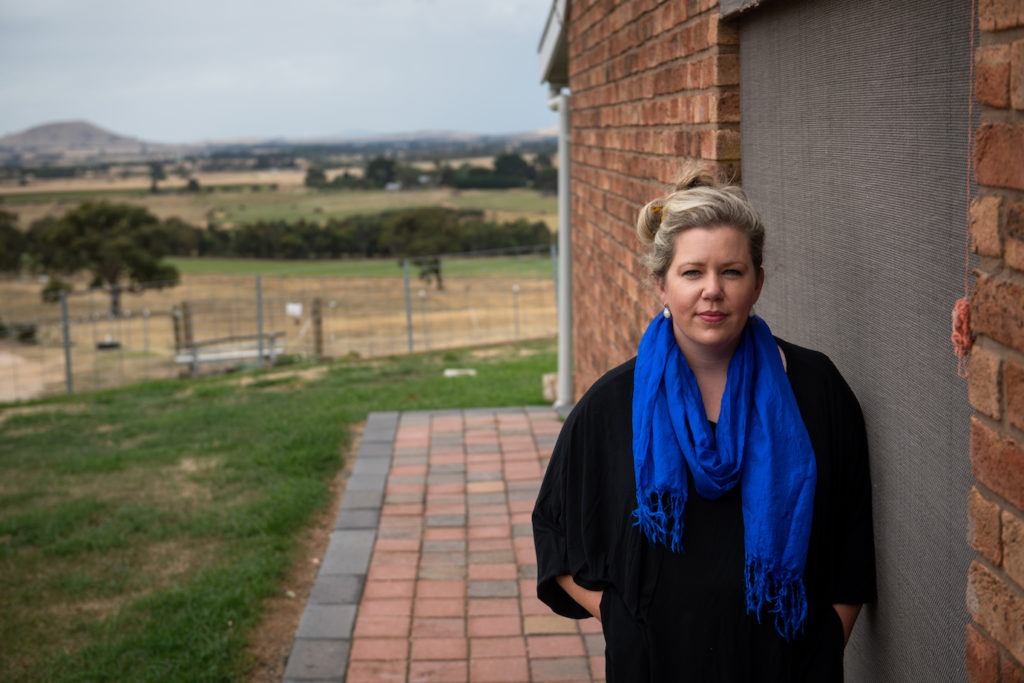We all deserve to leave for work each day, knowing that if we say goodbye to our loved ones, it’s not goodbye forever. And when we’re at work, our laws should protect us and keep us safe.
The 21st of March 2018 is a day Lana Cormie can relay in systematic detail. It was the day that changed the course of her life forever. The day she senselessly lost her husband in a workplace incident.
Helicopters flew overhead that morning; a signal of disaster in a small country town. Just a few hours into the work day, tragedy stuck on a construction site on the outskirts of Ballarat. Charlie Howkins, 34 at the time, had lost his life alongside his friend, Jack Brownlee, just 21, when a trench they were digging collapsed.
Two young lives cut short, leaving two families broken.
“Life’s been very tough ever since Charlie died,” Lana told Jo Stanley in a live interview on Broad Radio. “My children, Sophie and George, and myself, I guess, have had the rug pulled from under us.”
In the event of such a tragedy, anyone would expect there to be an adequate system of justice; one that acknowledges the disaster, the invaluable lives that were lost, and works to prevent it from happening again.
A grief-stricken Lana was disappointed to learn that these laws fell short, in fact, they hardly existed. What did exist were laws that didn’t hold individuals – the employers that failed to provide to a safe workplace – to account. Legislation that spoke only of risk, with no mention of the tragic loss of life and the devastation to their families. Lana considered it as the “ultimate insult for our laws not to even acknowledge that those people even existed.”
A hopeless system, leaving a hopeless means for justice.
“Early on I had a moment where I, sort of, looked to the heavens and thought, NO that’s it, I refuse to become a victim in this and let my children become victims,” Lana told Jo.
By choosing to use her tragedy as a catalyst for change, Lana has been a fierce advocate for workplace safety, a journey that started when she connected with Azmeena Hussain, Work Place Injury Principal Lawyer at Morris Blackburn.
When the unthinkable happens, the idea of approaching a lawyer seems overwhelming and difficult. Lana stresses the importance of finding a lawyer you trust and connect with as, “you’re going to walk a long road with them.”
Lana found those qualities in Azmeena, who met Lana’s determination with unwavering support and humility.
“I remember when I first met Lana, the resilience she shows, and essentially the leadership since then has been incredible”, says Azmeena.
The 1st of July 2020 saw the implementation of new laws enshrining industrial manslaughter as a criminal offence, holding employers who negligently cause a workplace death accountable to fines of up to $16.5 million, and most prominently, 20 years in jail for individuals.
Azmeena says that this ‘essentially life-changing’ legislation stands up to a previously ‘faceless employer’ who would usually walk away unscathed. She continues with the hope that now, ‘families can get some element of justice from that process.’
The protections and deterrents provided by this legislation will play a significant role in protecting those who are vulnerable to the power imbalance between workers and employers. Azmeena says that it is crucial, “they have a voice and they have a platform to be heard.”
None of this would have happened without Lana’s determination, the support of other families who refused to tolerate a broken system, and the workplace safety advocacy groups that have been fighting tirelessly for this cause.
“I don’t often speak about my clients in front of them,” Azmeena says, causing both women to smile, in what seems to be in appreciation of each other. She continues, “Lana single-handedly lobbied government and has created this change.”
The unspoken warmth between Lana and Azmeena, two women connected by tragedy, is telling of the support and empowerment that exists in their relationship.
“She’s taken this enormous personal tragedy and used her own injustice to do so much good, to redefine the narrative for families and workers for years to come.”
Lana’s refusal to become a passive statistic is heroic, with her journey acting as confirmation that nothing is more powerful than a woman met with adversity.
When asked what more there is to do Lana replied, “until there’s no one dying at work, there’ll always be more to do.”
Broad Radio broadcasts live on Facebook and YouTube every Tuesday at 9am, or catch up via their podcast, Broad Radio On The Go.


